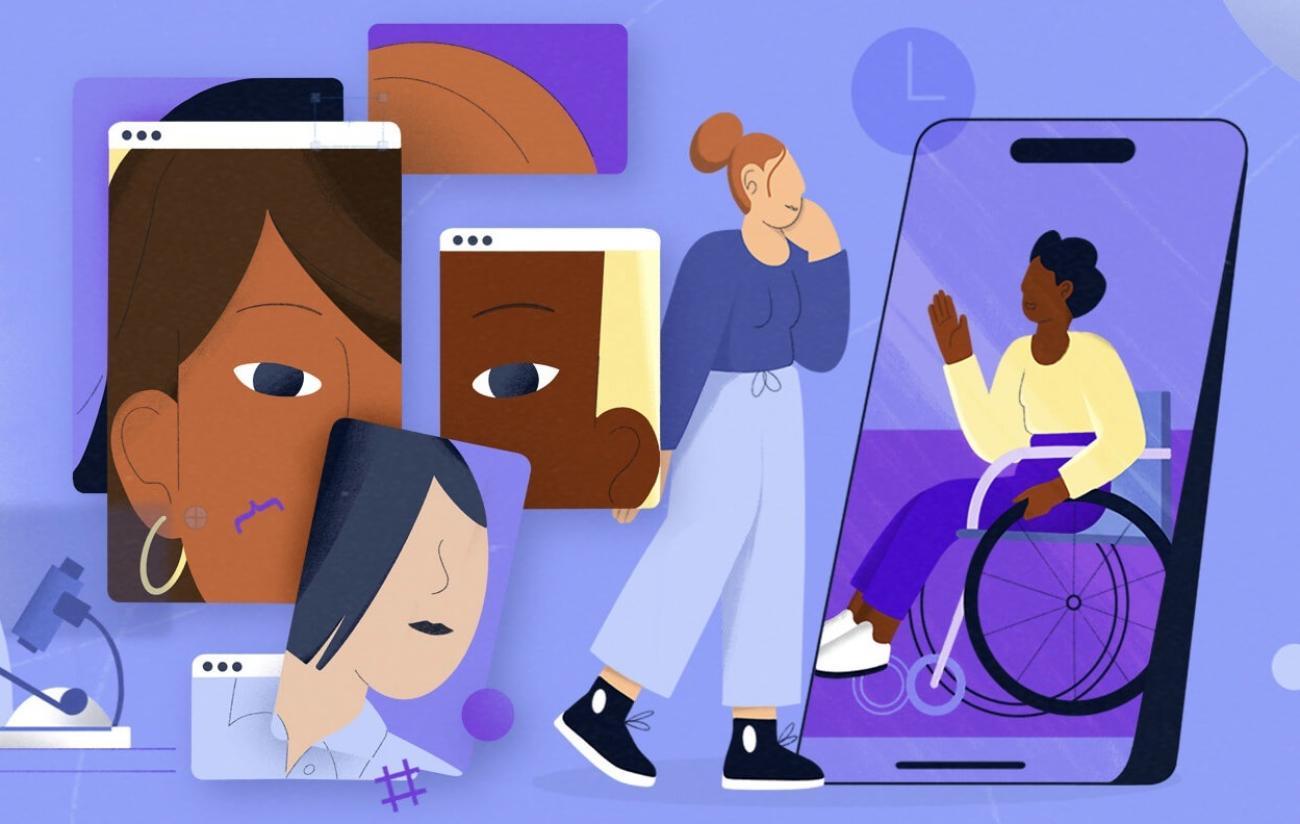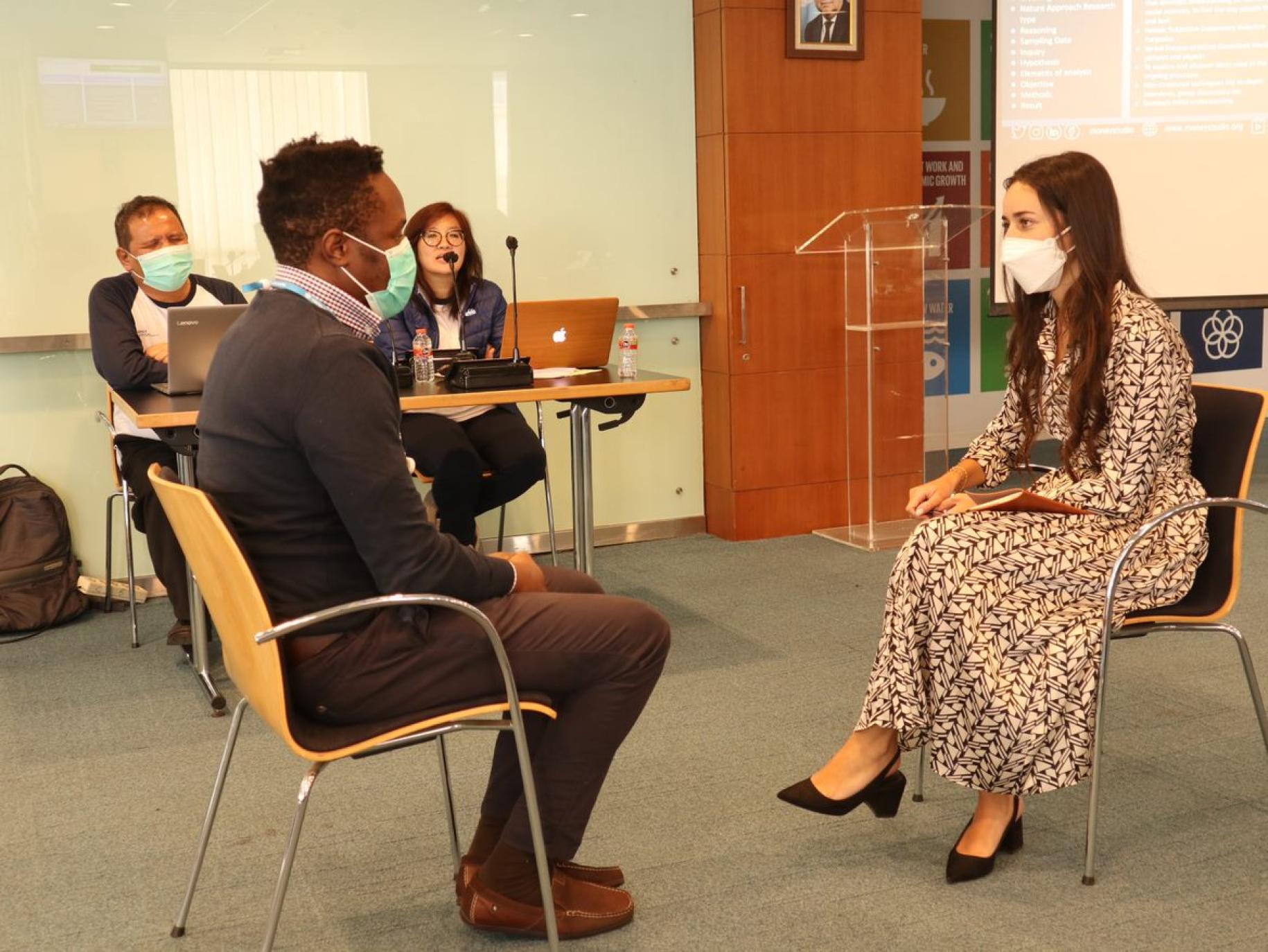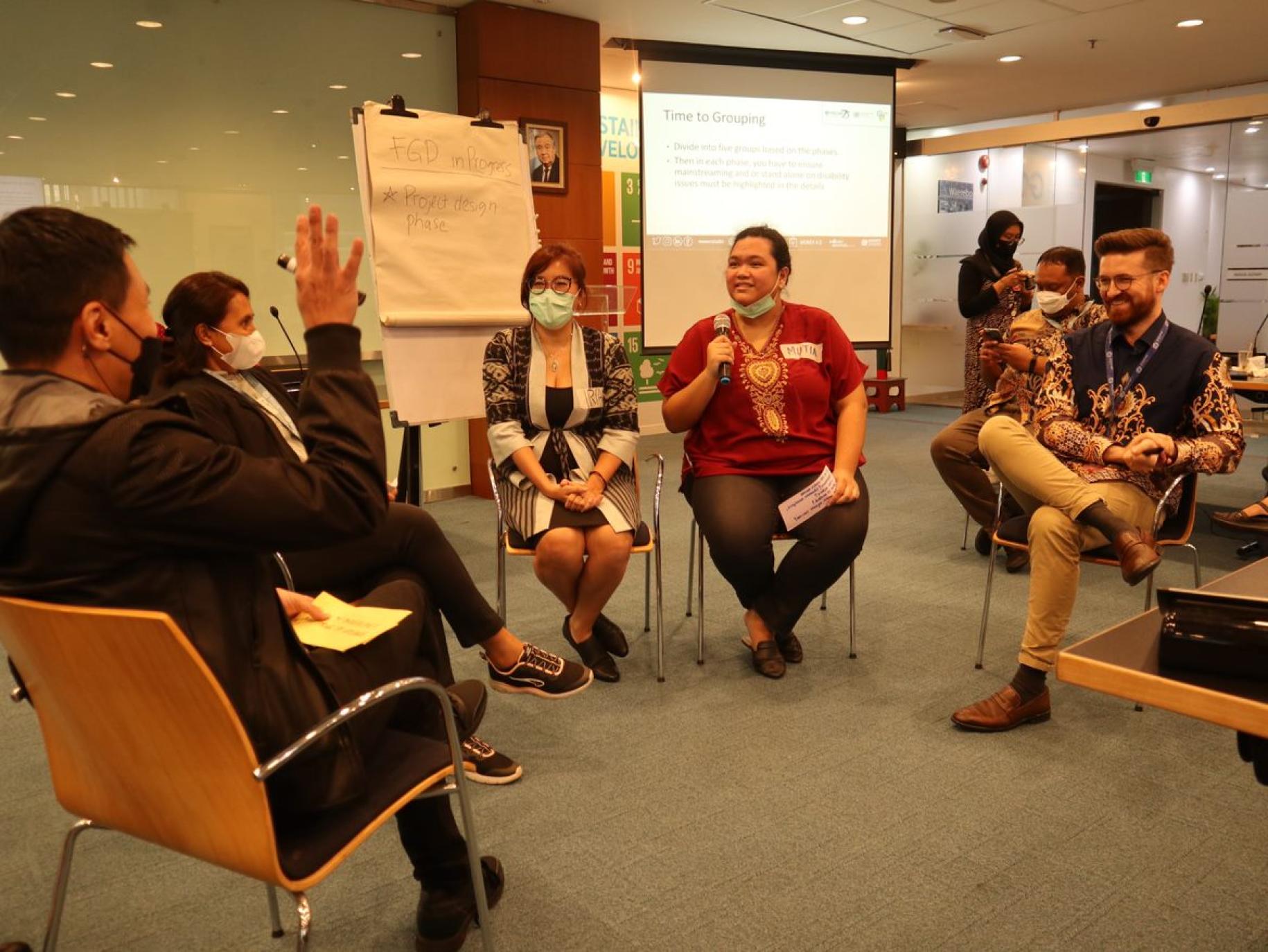Bringing disability inclusion to life at UN Indonesia

As one of the 10 countries piloting the UN Disability Inclusion Strategy, UN Indonesia has made significant progress in improving the accessibility of its main offices, training hundreds of staff and transforming its Information and Communications Technology to widen opportunities and leave no one behind. But as Afke Bootsman, Head of the Resident Coordinator’s Office for UN Indonesia, is quick to point out, these changes are just the start of a shared learning journey towards a truly inclusive workplace and culture.
Indonesia is an extremely diverse country, but few of its workplaces are truly inclusive or representative of the population. Following the previous – and ongoing – focus on gender equity and youth inclusion, the UN in Jakarta recognised that much more could, and should, be done to improve the prospects of one of the most under-represented groups of all: people with disabilities.
A more accessible building
After a comprehensive accessibility assessment of UN House in Indonesia– the Menara Thamrin Building in March 2022, several opportunities were identified to make the workplace more accessible, including ensuring that stairways have consistent handrails and installing sliding doors in a number of meeting rooms to make them easier for wheelchair users and people with visual impairments.
Starting the cultural change
But while changes to the premises may be immediately obvious, it’s the cultural change that is perhaps more significant. The aim is to encourage greater empathy for people with disabilities, anticipate the challenges they may face in traditional working environments and adapt practices to be more inclusive.
Last summer, the frontline facilities staff – including security and cleaners – received accessibility and inclusion training. The results were impressive – not only for the relatively small number of people with disabilities that work at UN House but also for visitors.
“A senior UN official from overseas came to Jakarta with few staff knowing he had a visual impairment,” Afke recalls. “He told his hosts later he was hugely impressed with the warmth and sensitivity of the welcome he received.”

Inclusive online meetings
Another area where there has been immediate impact came from training on hosting inclusive online meetings. Over 200 staff attended the training; learning best practices to help people with disabilities participate fully, such as by making documents, spreadsheets and presentation files accessible, sharing materials in advance of meetings, ensuring captions are available and checking whether any adjustments need to be made. There is ample evidence of changing habits in everyday work, but Afke also highlighted the success of a major event – Volunteer Awards – which were fully inclusive for the first time.
Focusing on ICT and HR
The next area of change will be around ICT, with the recommendations from an interagency assessment in summer 2022 built into a new ICT Accessibility Action Plan for 2023 to 2024. The Disability Inclusion Advocate network and Operations Management Team are working together to make sustainable changes to operation processes, build staff competencies, foster an inclusive culture, and strengthen inter-agency collaboration.
The team is also focusing on HR and in particular recruitment. Processes and practices are being revisited, including removing any barriers to applying for jobs with the 20 UN agencies. An open-door event is also scheduled soon, which aims to encourage people with disabilities to apply for UN vacancies.
Considering disability in policy and programmes
Alongside these practical changes in the workplace, the Resident Coordinator's Office is also leading on several programmatic initiatives focused on disability inclusion. For example, it has directly engaged with organisations that represent and support young people with disabilities to consult them within policy making.
The team has also led on adapting Inter-Agency Standing Committee (IASC) Guidelines on the Inclusion of Persons with Disabilities in Humanitarian Action for use in an Indonesian context, including by translating them into Bahasa Indonesia.

A collective learning journey
For Afke, getting to this point has been rewarding, but not without difficulties. She points to the proposed recruitment of an RCO intern with Down Syndrome as a great example. Practical challenges have meant this had to be postponed for a short while, as the team adapts facilities and learns how to communicate with and support their new team member.
“It really is a collective learning journey for us all,” she says. “The positive side of that is the high level of interest and commitment we have for being more inclusive. We’ve set up an advocate network and people really want to do whatever they can to make UN House, and our agencies, welcoming.” The role of the UN Disability Focal Point is also crucial, who in Indonesia is a staff member from ILO, M. Tendy Gunowan. The guidance, knowledge and support he is providing is making the difference.
Nobody says "no", but...
Staying the course will be vital. “When we talk about new initiatives and barriers we need to address, nobody ever says no. But actually turning that into positive commitment – especially where that would mean committing resources – is difficult. The funding we had to pilot UNDIS helped us get this far: keeping momentum will be harder but we are committed to make it happen.”
This story was originally published by UN Indonesia and has been adapted by UN DCO. To learn more about the work of the UN in Indonesia visit Indonesia.un.org













